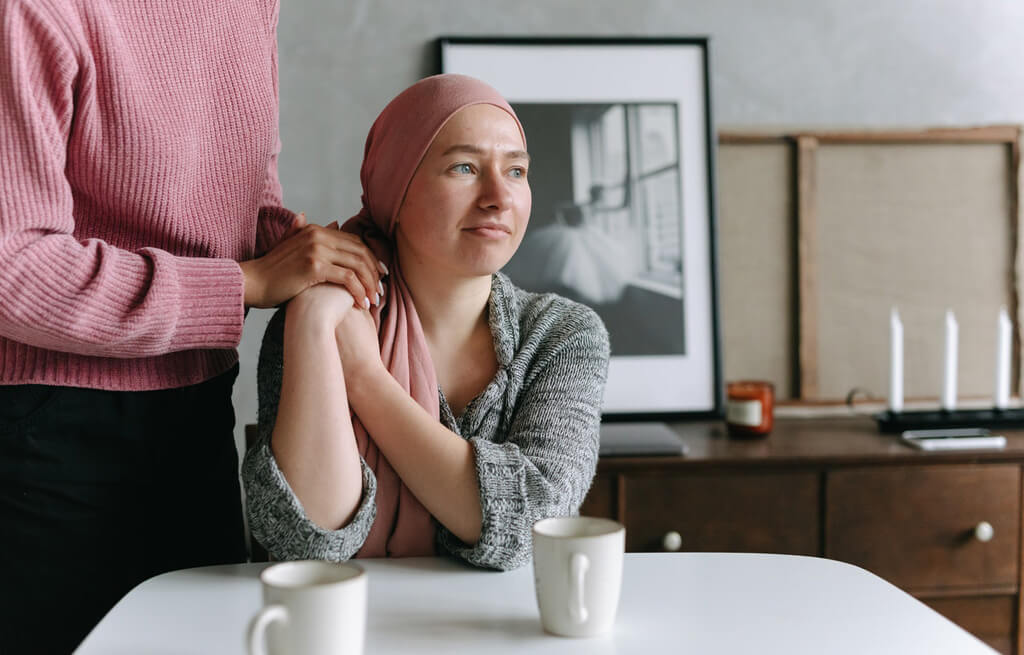Survey finds 40% of cancer patients would choose hospitals offering services such as exercise, nutrition counseling, massage, and meditation
WASHINGTON (Nov. 15, 2022) – Nearly two-thirds (62%) of people with cancer want to know about complementary therapies such as exercise, nutrition counseling, massage, and meditation before starting conventional treatment, but only 33% of oncologists agree with that timeline, according to a new survey conducted on behalf of Samueli Foundation.
“Patients want more information about their options so they can make informed decisions about their overall treatment—both traditional and complementary together,” said Wayne Jonas, MD, president of Healing Works Foundation. “It’s up to providers to engage in conversations with their patients to better understand the ‘whole person’ who is coming for care and to foster treatment plans catered to individuals.”
The survey of more than 1,000 patients, who were diagnosed with cancer within the past two years, and 150 oncologists revealed strong patient preference for cancer care that integrates supplemental approaches. Forty percent of cancer patients say they would have chosen a hospital that offered complementary therapies if they could go back in time. More than one-third (35%) report their satisfaction would have increased if their healthcare team had offered them complementary services, such as mental health support/therapy, mindfulness, and spiritual services, in addition to traditional treatments like radiation and chemotherapy.
More than three-quarters of oncologists (76%) said they want to learn more about the benefits of complementary therapies combined with traditional treatments. But many cited barriers to pursuing integrative approaches, including lack of insurance reimbursement (49%), lack of staff (39%), a misperception that patients are not interested (32%), and a lack of time to fit these options into conversations with patients (31%).
“It’s clear that clinicians, insurers, and hospitals need to both learn about and offer more access to information and treatment options,” said Jonas. “Patients and oncologists alike want see the benefits of treating the whole person instead of just the disease, yet many systems are established in a way that prevents that kind of care.”
Fifty percent of patients and 60% of oncologists strongly agree that integrative oncology can help manage side effects and improve overall well-being, both during and after treatment. Additionally, 40% of patients and oncologists alike believe that adding complementary therapies improve treatment outcomes and overall survival compared to using medical treatments alone. Urban patients (55%) and patients ages 18-50 (72%) say this much more often than rural patients (35%) and those 75 and older (23%).
Overall, 66% of cancer patients report using at least one complementary therapy, yet a majority never communicated this information to their oncologists. The most reported complementary therapies used were nutrition consultation (35%), mental health support/therapy (27%), exercise consultation (26%), meditation/mindfulness (26%), and spiritual services (25%). For patients, more than one-quarter said the top two barriers to using complementary approaches are their lack of knowledge of these treatments and their treating institution not offering this option.
“Hospitals and providers need to offer more care options alongside traditional cancer treatment to enhance patient satisfaction and improve quality and length of life for persons with cancer,” said Jonas. “By offering integrative health care options, medical providers can meet the exploding demand from patients. It’s up to us, as health care providers, to learn about and advocate for more treatment options that go beyond just pills and procedures.”
The survey was conducted by IQVIA, a leading global provider of advanced analytics, technology solutions and clinical research services to the life sciences industry dedicated to delivering actionable insights.
Click here to download the full survey findings.
Survey Method:
The survey was conducted online within the United States by IQVIA on behalf of Samueli Foundation from Aug. 12, 2022 – Sept. 1, 2022, among 152 oncologists and 1,004 patients diagnosed with cancer within the past two years. IQVIA (NYSE:IQV) is a leading global provider of advanced analytics, technology solutions and clinical research services to the life sciences industry dedicated to delivering actionable insights. Learn more at www.iqvia.com. For complete survey methodology, including weighting variables and subgroup sample sizes, please contact Stacy Skelly at sskelly@TheReisGroup.com.

